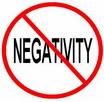 A few people have written to me this morning both publicly via ArtsJournal and privately via my email address in response to the blog post I wrote yesterday about the upcoming National Arts Journalism Summit in Los Angeles.
A few people have written to me this morning both publicly via ArtsJournal and privately via my email address in response to the blog post I wrote yesterday about the upcoming National Arts Journalism Summit in Los Angeles.
A couple of commentators brought up some worthwhile criticisms of the concept which I would like to highlight and reply to. Here is the first:
“Only four hours for a “summit on journalism”? Seems to me a rather paltry amount of time to spend on such an important subject, and most of it is going to be taken up by speeches and presentations. They can talk about participating through text messaging or Twitter, but it seems a poor way to learn, reason and then offer insights and ideas about a complicated subject. But have at it. Perhaps it will dawn on people that superficial thinking is the problem.”
And here is the second:
“Four hours is not long enough, nor is the 10-15 minutes each of the five finalists gets to make their presentations. I also find the secrecy a bit overdramatic. The judges should be named and identified. Mr. McLelland said that 27 of the submissions were agreed by the judges to be strong. Why not at least identify those 27 strong ideas and let’s have a real dialogue on how we can forge a future for arts journalists. Why travel to participate in a 4 hour forum when you can do it from the comfort of your office?”
The criticisms that these commentators make about the summit seem reasonable. Four hours isn’t a long time. And now that commentator B mentions it, listing the 27 top projects considered for the summit on the website in advance of the live event might be a lovely way to generate excitement ahead of October 2 and make more of the people who contributed projects feel like their efforts were well received. Perhaps the organizers might consider doing this in the coming days?
On the other hand, it seems rather strange for people to start denigrating the summit before it even takes place. This is a first-of-its-kind event. We should be supporting and looking forward to its birth, not tearing it down in utero. Criticism will no doubt play a valuable role when the event is over and we can evaluate its success. But right now, the negativity comes across as rather hollow.
